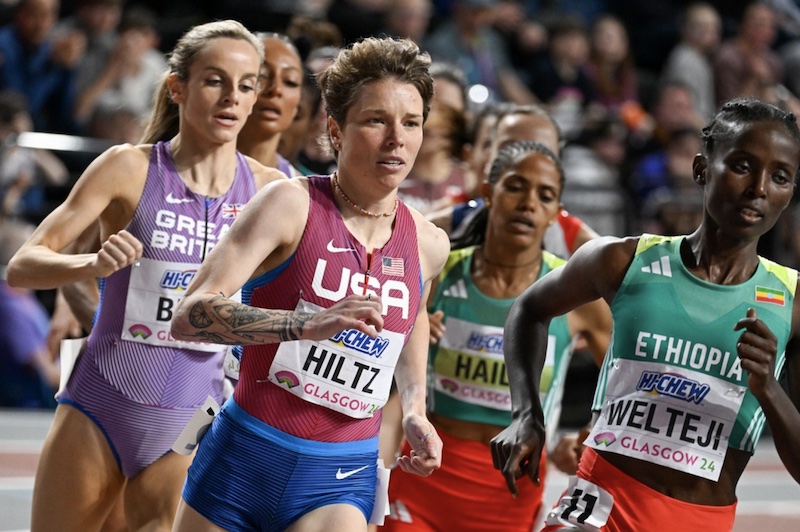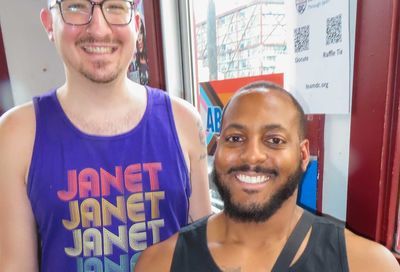Police Investigating Transgender Woman Amber Minor’s Murder
Amber Minor was initially misgendered by police after being shot to death in a driveway in the city of Raytown, Missouri.

Police in Raytown, Missouri, are investigating the shooting of a transgender woman on Christmas Eve.
Amber Minor, a 40-year-old Black transgender woman, was initially misgendered and deadnamed by law enforcement, with media following the same pattern based on the police report.
After being chastised by local LGBTQ community members, media reports of Minor’s death were corrected.
According to The Kansas City Star, officers in Raytown, a suburb of Kansas City, were dispatched to the 9800 block of 77th Terrace in response to a report of a body lying in a driveway. Upon arriving, they found Minor suffering from an apparent gunshot wound.
She was pronounced dead at the scene.
Those with information about the shooting are asked to call the police department’s TIPS hotline at (816) 474-8477.
On December 29, Kansas City’s LGBTQ Commission authored a post memorializing Minor, describing her as “a resilient Black Trans woman who lived a life full of laughter.”
Rest in Power Amber Minor. 💐
Amber was taken from our community on Christmas Eve here in Kansas City. Amber was a resilient Black Trans woman who lived a life full of laughter.
We we’re working in alignment with Transformations to ensure we’re showing up for those impacted. pic.twitter.com/Z41ESYfWz1
— LGBTQ Commission of Kansas City (@LGBTQCommission) December 30, 2023
Justice Horn, the commission’s chair, alerted community members in his own post of Minor’s murder, describing the act as “senseless” and remembering Minor as “full of love and life.”
I’d like to deliver some sad news to the Kansas City community: On Christmas Eve, Amber Minor—a Black Trans woman full of love and life was senseless murdered in our community.
We’re working closely with Transformations and local Trans leaders to ensure we’re supporting those… pic.twitter.com/D15wmBXW7e
— Justice Horn (@JusticeHorn_) December 29, 2023
In a tweet the following day, Horn informed community members that Minor’s body had been cremated after no one claimed her body — possibly due to police misgendering and deadnaming her.
“We’re working in alignment with Amber’s loved ones and community partners to ensure we bring those who are hurting, accurate and up to date information,” Horn wrote. “We also want to aid them in whatever justice looks like for Amber Minor here in our community.”
We’re working in alignment with Amber’s loved ones and community partners to ensure we bring those who are hurting, accurate and up to date information. We also want to aid them in whatever justice looks like for Amber Minor here in our community.
I will continue to keep the…
— Justice Horn (@JusticeHorn_) December 31, 2023
Tre’Shawn Roberts, a childhood friend of Minor’s, told the Star that Minor had an infectiously boisterous personality and could turn a dark situation to light. She and Minor grew up in the same neighborhood and played together often. They developed a strong bond as they grew older and transitioned around the same time.
Robert recalled how Minor’s strong-willed personality helped her overcome the marginalization and discrimination that transgender people, especially trans women, often face.
“We built up a strong outer appearance where we didn’t give a fuck about how anyone looked at us, felt about us, or thought about us,” Roberts said. “It wasn’t their life they had to live, it was our life. And if you didn’t like it, fuck you. It didn’t matter who it was. There were no exclusions. Even though we were excluded from many things.”
Kym Walton, another transgender woman and friend of Minor’s for the past 20 years, lamented her friend’s death. She called Minor a “survivor,” noting that Minor had spent time in foster care as a child and had recovered from several major injuries after being shot in the stomach over a decade ago, and hit by a car and shot in the neck a few years ago.
“That girl, she was a warrior, wasn’t she?” Walton said.
Minor is one of more than 30 transgender, nonbinary, and gender-nonconforming people known to have died by violence in the United States in 2023, according to statistics compiled by the Human Rights Campaign. Another list, by the Pittsburgh Lesbian Correspondents blog, puts the number of victims at 42. A majority of those victims were transgender women of color, with about half being Black transgender women.
According to HRC, 48 percent of victims were misgendered or deadnamed by law enforcement authorities or the press. That means that unless such errors are corrected publicly, the number of trans individuals killed may be even higher than reported.
Support Metro Weekly’s Journalism
These are challenging times for news organizations. And yet it’s crucial we stay active and provide vital resources and information to both our local readers and the world. So won’t you please take a moment and consider supporting Metro Weekly with a membership? For as little as $5 a month, you can help ensure Metro Weekly magazine and MetroWeekly.com remain free, viable resources as we provide the best, most diverse, culturally-resonant LGBTQ coverage in both the D.C. region and around the world. Memberships come with exclusive perks and discounts, your own personal digital delivery of each week’s magazine (and an archive), access to our Member's Lounge when it launches this fall, and exclusive members-only items like Metro Weekly Membership Mugs and Tote Bags! Check out all our membership levels here and please join us today!


























You must be logged in to post a comment.